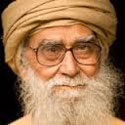
By Maulana Wahiduddin Khan for New Age Islam
22 April 2015
Islam is based on three foundations: the Quran, the Prophet’s practice or Sunnah, and Ijtihad. These three sources can be explained in other words as ideology, application and reapplication respectively.
The intellectual or ideological aspects of religion are discussed in the Quran. From the Sunnah we learn how the Prophet adopted Islamic teachings in his practical life. And ijtihad is the name of the serious effort engaged in by a believer to make a rediscovery of religion in reference to the new conditions.
Ijithad is a continuous requirement of Islam. Islam’s teachings are eternal, but people’s conditions keep changing. Religious commandments do not change with the changing of these conditions. But what changes is the method of the application of these commandments. This is a crucial, never-ending necessity. On account of this, even at the time of the Prophet, his Companions engaged in ijtihad, and this ijtihad continued in later times as well.
Today, among the issues on which ijtihad is necessary is the understanding of the distinction between the traditional and the modern age, and to accordingly search for appropriate reapplications of religious commandments in present times. For instance, propagating the Quran is an eternal commandment, and the Quran is itself the biggest means for inviting people to Islam. In ancient times, when there were no printing presses, the Companions of the Prophet did this task by reciting the Quran to people. Now, in the age of the printing press, believers must do this task by distributing printed copies of the Quran.
From this example one can gauge other forms of necessary ijtihad.
Ijtihad or reapplication has no rigidly fixed principle. To engage in ijtihad, two things are necessary: a deep understanding of religion and of the conditions of the times.

No comments:
Post a Comment